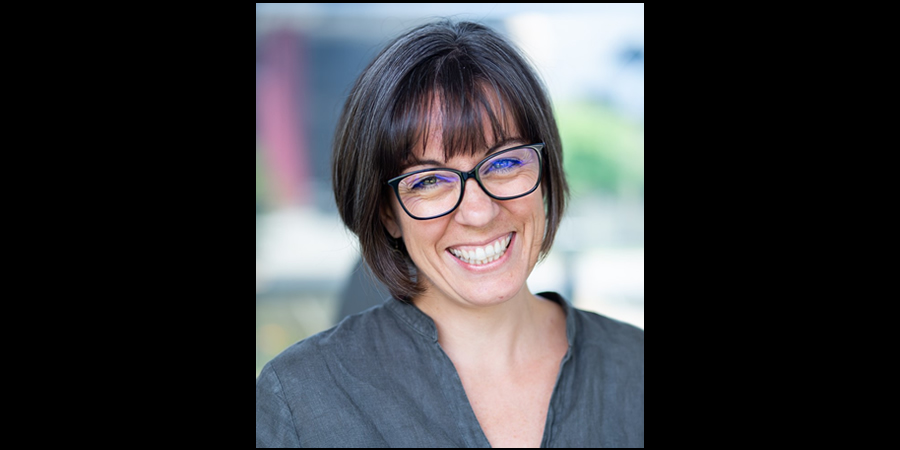In an exclusive for Telecom Review with Nicole Arian-Markazi, head for customer success in the Middle East and Africa (MEA) region and head of UN Women Program at Nokia, we learned how with shared commitment and focus, meaningful progress is made towards making diversity, equality, and inclusion a reality globally and within the company's workplace.
Inclusiveness is known to be at the heart of Nokia’s value creation and is core to the way they do business, innovate, and partner with customers. Back in May 2021, Nokia collaborated with UN Women to boost inclusion and diversity for equality in the MEA region.
What are some of your important professional highlights within Nokia as one of the leading telecom vendors in the industry?
Working for Nokia has opened many opportunities for me. I highly appreciate working in diverse teams and having the possibility to be involved in various parts of the organization. With each accomplished project, I gained more insights about an international company and more opportunities opened up to take the next step in my career. Nokia’s purpose, ‘to create technology that helps the world to act together’ has especially influenced my path in the last two years. This brings me to one of my recent career highlights: the creation and execution of Nokia’s Converged Female Program with UN Women’s support, piloted in the Kingdom of Saudi Arabia. This purpose-driven collaboration program, focusing on women empowerment, brings together female talents from Nokia as well as local stakeholders in Saudi to create female end-user focused opportunities. The possibility to create such a program with the strong endorsement of Nokia leaders and to experience the embracement of local stakeholders’ vision – to create technology by women for women — has been very rewarding and special to me.
As a woman in a telecom environment, what are the main struggles or challenges you faced? How did you cope up with them?
Looking back, one of the main challenges for me has been the ‘one-only’ situation. The low number of women in the tech sector has its consequences. For instance, there were many situations where I was the only woman in meetings, team setups, and decision-making processes. It took extra effort to blend into these scenarios, get attention for my different perspectives and make sure I got understood and somehow translate the men-oriented culture into my own world. It took my special focus to bring myself to a point where I felt confident in these situations and still be true to my own behaviors, values, and skills as a woman, and gain experience in how one handles ‘one-only’ situations. What helped me here were strong men leaders around me who encouraged and empowered me, as well as coaching programs oriented on female leadership behavior to not only get confident as a woman, but also understand that balanced, diverse views are a must to create an all-inclusive future for the world.
Gender equality and women empowerment are integral to each of the 17 goals under the 2030 Agenda for Sustainable Development. What are Nokia’s contributions to achieve these goals?
Inclusiveness and diversity sit at the heart of Nokia’s value creation and are core to the way we do business, innovate and partner with our customers. Nokia’s sustainability has identified three main cornerstones — climate, integrity, and an inclusive culture. With these, we can truly improve people's lives with technology and maintain our leading position in sustainability.
From your standpoint, what are the opportunities that look very promising within the region in the years to come? In line with this, how does Nokia plan to keep up its reputation towards its customers — both enterprises and individuals?
The openness of customers and governments in the Middle East and Africa to collaborate towards women empowerment is strong, which creates opportunities to collaborate and strengthen our efforts in this area. In the collaboration projects with UN Women, Nokia is working with customers and governments to achieve improved gender equality. Nokia sees technology as central to the solution for the world’s fundamental challenges. Subsequently, the projects are embracing different aspects of technology, e.g. creating health awareness especially in rural areas and cooperating with schools to inspire girls for science, technology, engineering and mathematics (STEM). We also work with universities to understand women’s aspirations and preconceptions towards a career in the tech sector. Based on the findings, we will launch concrete initiatives. These projects are delivered by Nokia’s greatest asset: its people. Women and men from Nokia involved in these projects act as role models, showcasing gender equality in action.
As the head of the UN Women Program at Nokia and an advocate of female talent development in the workplace, what message can you convey to our readers?
I truly believe that we live in times of change. In the past, the stereotype that the technology sector was less suitable for women, was dominant among many men as well as women. Today, we have to break this thinking pattern. More and more women should capitalize on opportunities in the tech domain. It is essential for the world’s future that women boldly influence and contribute to technology creation. Technology plays a major role in influencing many important areas of our private and work-life environment including education, work processes, hospitals, and entertainment. For some, it opens the door for entrepreneurship too. So, women should take part in the decision-making process and technology creation for the betterment of society today and tomorrow. Our vision should be a gender-neutral technology which serves all. We owe this to the next generations to come.









